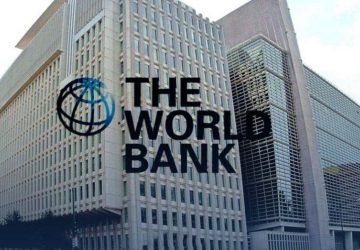The World Bank’s Board of Directors approved on Wednesday a $34 million project to assist Lebanon in restoring essential budget management functions within the public administration. This initiative aims to reinstate public services, ensure citizen welfare and facilitate sustainable economic recovery.
According to a communiqué issued by the financial institution, the fiscal management project aims to restore essential functions of public finance management. This will be accomplished by stabilizing revenue management through improved tax compliance, providing training and capacity-building for customs legislation implementation and considerably enhancing the ICT (Information and Communication Technologies) capacity of tax and customs system. The project will also restore budgetary controls and promote heightened government accountability by bolstering budget preparation, regularizing budget reporting, ensuring timely processing of public payments and reinstating essential IT functions for fundamental public finance management. Furthermore, it will reinforce surveillance and accountability capacities of the Court of Auditors and the Central Inspection, improve capacity-building initiatives at the Institute of Finance and professionalize public procurement practitioners.
However, the project ties some disbursements to specific outcomes or performance-based conditions. Upon successful achievement of these conditions—such as timely budget preparation, effective administration of fiscal and customs functions, accurate reporting, government payments, audits and payroll verification—a portion of the project funds may be used to encourage personnel from the Ministry of Finance, the Court of Auditors and the Central Inspection. Performance-based conditions have been selected for their crucial importance in restoring essential functions of public finance management and reinforcing responsibility and transparency. Disbursements tied to these conditions will be underpinned by a robust governance framework, necessitating a decree from the Council of Ministers and a ministerial decision for incentives. Moreover, supervision will be provided by a multi-stakeholder steering committee, advice from a consultative committee, independent verification by a third-party agent and periodic and independent external audits.
The budget management project is funded by a $28.5 million loan from the International Bank for Reconstruction and Development (IBRD) and a $5.5 million grant from the Lebanon Financing Facility (LFF), a multi-donor fiduciary fund established in December 2020. Of this, $14.1 million will be allocated to ICT systems, covering hardware, software, licenses and maintenance, while $12.3 million will be disbursed over three years based on performance-based conditions. The remaining amount will support investments in green energy and other essential activities, including technical assistance and capacity-building. The conception of the project takes into consideration public finance management programs from other development partners to reinforce synergies and mobilize support.
In this regard, Jean-Christophe Carret, World Bank Country Director for the Middle East Department, declared, “Well-operating public institutions are essential to effectively facing the ongoing crisis and laying the groundwork for recovery. Tackling challenges related to revenue administration and public expenditure management is imperative to restoring citizens’ trust in the state’s ability to fulfill its core functions and assisting Lebanon in breaking free from this vicious cycle,” he pointed out.
The World Bank recalls that after over four years of a severe economic and financial crisis, Lebanon’s public finances have considerably deteriorated, contributing to the collapse of public service provision. This deterioration has exacerbated longstanding issues relating to institutional capacity weakness, lack of transparency and structural problems, all of which have contributed to bad financial governance.
Between 2018 and 2022, Lebanon’s real GDP contracted by 34%, wiping out over 15 years of economic growth. Since the onset of the crisis in 2019, the Lebanese pound has depreciated by over 98% in value. Triple-digit inflation and currency devaluation have eroded public sector salaries, leaving employees struggling to afford transportation to work and essential goods for their families. Consequently, a significant number of public sector employees have left, either for the private sector where salaries have been partially adjusted, or for opportunities abroad, creating a critical shortage of skills and personnel in the public sector.
Absenteeism rates are soaring, with most civil servants only attending the office once a week. This has serious consequences on the government’s capacity to fulfill its essential functions. Moreover, customs duties and tax revenues have diminished amid the crisis, leaving domestic revenues insufficient to ensure economic stability, budgetary viability and funding for essential social services.




